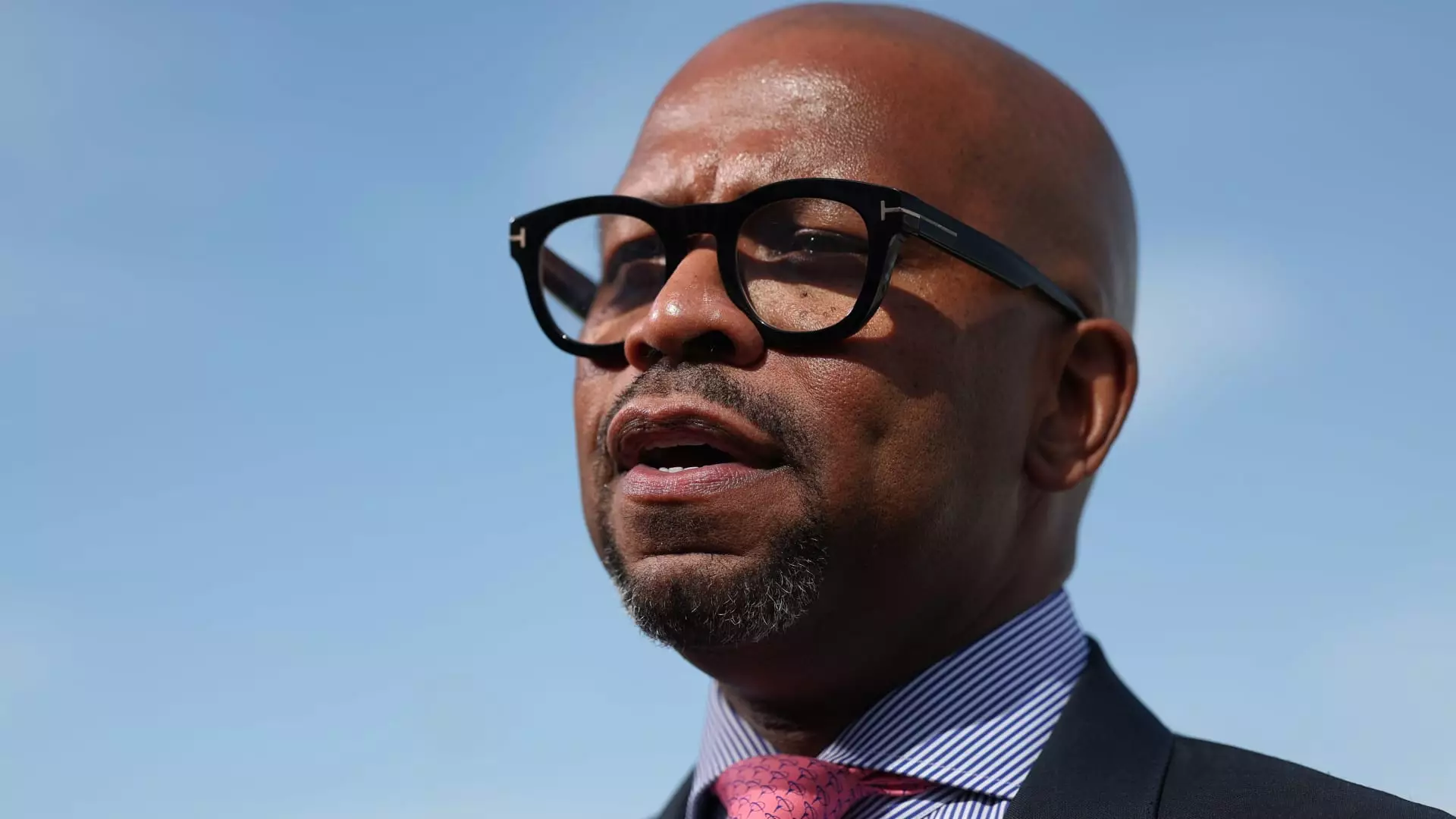In a surprising turn of events, Ted Colbert, the head of Boeing’s defense division, is departing the company immediately. This decision, announced by newly appointed CEO Kelly Ortberg, marks a significant shift for Boeing, which is grappling with various challenges in its defense, space, and security sectors. Ortberg’s memo to staff outlined a commitment to restoring trust with customers—a critical goal for improving performance and fulfilling the company’s commitments. As the first major leadership change since Ortberg assumed the CEO role in early August, Colbert’s exit underscores the urgency Boeing faces in remedying its operational and reputational issues.
Colebert’s departure is emblematic of a broader crisis within Boeing’s defense unit. The unit plays a vital role in the company’s overall structure, generating nearly 40% of Boeing’s revenue in the first half of the fiscal year. This statistic highlights the importance of stable leadership in maintaining both operational efficiency and stakeholder confidence. Without a steady hand at the helm, the unit risks exacerbating existing production delays and cost overruns that have plagued recent projects, including the much-anticipated new Air Force One aircraft.
Addressing Production Challenges
Boeing’s defense sector has been contending with significant challenges that include persistent production problems and budgetary miscalculations. Reports indicate that delays in manufacturing and rollout have negatively impacted the unit’s reputation among governmental contracts and military collaborations. These issues not only hinder Boeing’s ability to meet contractual obligations but also threaten long-term relationships with key clients, thus necessitating swift and decisive action from leadership.
Looking Ahead: A Direction for Recovery
With Steve Parker serving as the interim head of the defense unit, there is an opportunity for a renewed focus on overcoming these systemic problems. Parker’s experience as chief operating officer may provide some degree of continuity while a search for a permanent successor occurs. Ortberg’s insistence on improving team performance signals both a call to action and a recognition that internal changes are essential for external success.
Moreover, Boeing’s challenges aren’t limited to its defense operations; the space division is also facing scrutiny. A recent incident involving the Starliner spacecraft, which returned without NASA astronauts after a mission intended for the International Space Station, casts further doubt on Boeing’s capabilities in high-stakes space endeavors. With competitors like SpaceX emerging as formidable players in aerospace, Boeing needs to bolster its leadership and operational strategies to remain relevant and competitive in both defense and space sectors.
As Boeing stands at this critical juncture, it may benefit from introspection and strategic recalibration to restore stakeholder trust and elevate operational performance. Leadership changes often serve as catalysts for necessary transformations, and there is an apparent expectation that new perspectives and insights could guide Boeing towards renewed success. The stakes are high, and the aviation giant must act decisively to navigate its challenges while striving to improve its market standing and fulfill its promises to customers.

